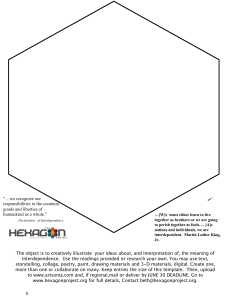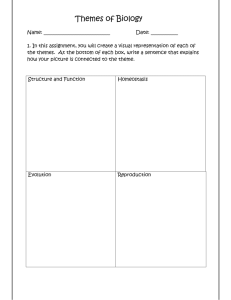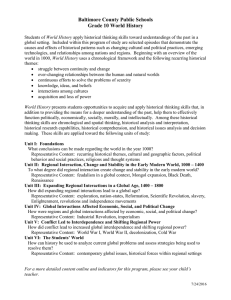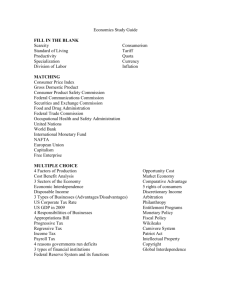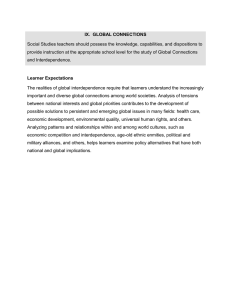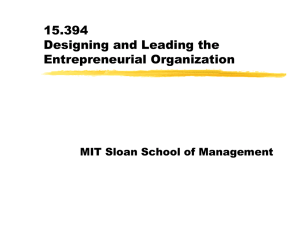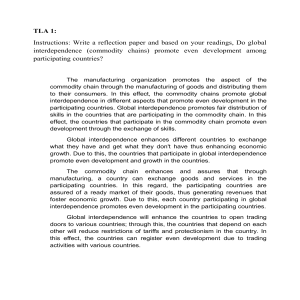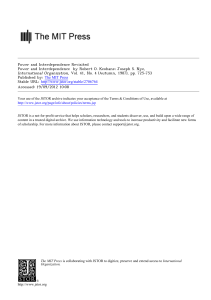Examples of Themes
advertisement
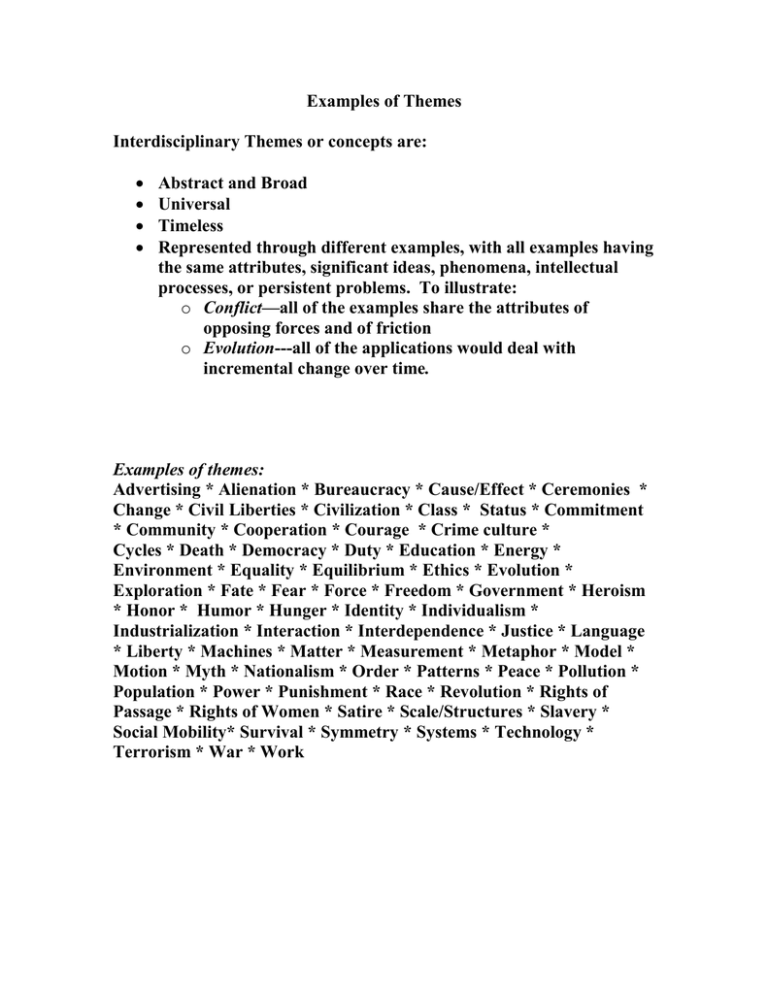
Examples of Themes Interdisciplinary Themes or concepts are: Abstract and Broad Universal Timeless Represented through different examples, with all examples having the same attributes, significant ideas, phenomena, intellectual processes, or persistent problems. To illustrate: o Conflict—all of the examples share the attributes of opposing forces and of friction o Evolution---all of the applications would deal with incremental change over time. Examples of themes: Advertising * Alienation * Bureaucracy * Cause/Effect * Ceremonies * Change * Civil Liberties * Civilization * Class * Status * Commitment * Community * Cooperation * Courage * Crime culture * Cycles * Death * Democracy * Duty * Education * Energy * Environment * Equality * Equilibrium * Ethics * Evolution * Exploration * Fate * Fear * Force * Freedom * Government * Heroism * Honor * Humor * Hunger * Identity * Individualism * Industrialization * Interaction * Interdependence * Justice * Language * Liberty * Machines * Matter * Measurement * Metaphor * Model * Motion * Myth * Nationalism * Order * Patterns * Peace * Pollution * Population * Power * Punishment * Race * Revolution * Rights of Passage * Rights of Women * Satire * Scale/Structures * Slavery * Social Mobility* Survival * Symmetry * Systems * Technology * Terrorism * War * Work Other examples from the work of James Beane: Personal concerns Understand personal Changes Curricular Themes Transitions Social Concerns Living in a Changing world Identities Developing Personal identity Finding a Place in the Group Cultural Diversity Interdependence Wellness Social Structures Personal Fitness Global Interdependence Environmental Protection Interdependence Social Status Class Systems Conflict Resolution Dealing with Adults Human Rights Commercialism Peer Conflict Global Conflict Justice Commercial Pressures Effects of Media Caring Questioning Authority Institutions Laws and Social Customs Personal Friendships Social Welfare Living in School Social Institutions From: J. Beane. (1997) Curriculum Integration: Designing the Core of Democratic Education. New York: Teachers College Press.
